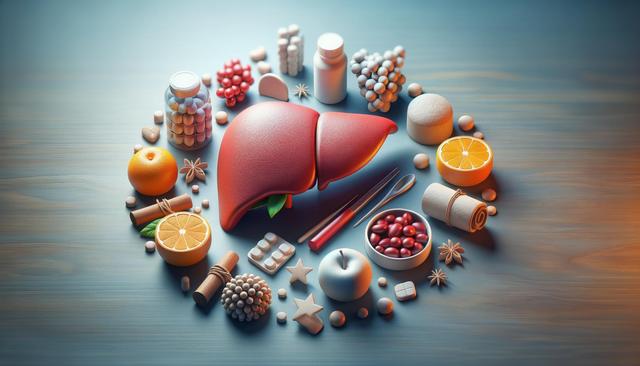Diet for Fatty Liver Disease

Understanding Fatty Liver Disease
Fatty liver disease, also known as hepatic steatosis, occurs when excess fat builds up in the liver. This condition can be categorized into two main types: non-alcoholic fatty liver disease (NAFLD) and alcoholic fatty liver disease. NAFLD is especially common and often associated with obesity, insulin resistance, and metabolic syndrome. While the liver normally contains some fat, when fat accounts for more than 5-10% of the liver’s weight, it can lead to inflammation, liver damage, and potentially more serious conditions like cirrhosis. Early stages of fatty liver disease may present no symptoms, which is why it often goes unnoticed until a routine blood test or imaging study reveals liver abnormalities.
Key Dietary Principles for Liver Health
Diet plays a central role in managing and potentially reversing fatty liver disease. A liver-friendly diet focuses on reducing fat accumulation, improving insulin sensitivity, and lowering inflammation. Here are some foundational dietary guidelines to consider:
- Focus on whole, unprocessed foods such as vegetables, fruits, legumes, and whole grains.
- Limit intake of refined carbohydrates, including white bread, pastries, and sugary drinks.
- Reduce consumption of saturated fats found in red meat, full-fat dairy, and fried foods.
- Incorporate healthy fats from sources such as avocados, nuts, seeds, and olive oil.
- Choose lean protein sources like beans, lentils, tofu, poultry, and fish.
These dietary shifts can contribute to gradual weight loss, which is one of the most effective ways to reduce liver fat. Even a modest weight loss of 5-10% can significantly improve liver health.
Foods that Support Liver Function
Certain foods are known to have properties that support liver function and reduce fat accumulation. Including these in a balanced diet can be particularly beneficial for individuals with fatty liver disease:
- Leafy greens like spinach and kale, which are rich in antioxidants and fiber.
- Oily fish such as salmon and sardines, which contain omega-3 fatty acids that reduce liver fat.
- Green tea, which is high in catechins and linked to improved liver enzyme levels.
- Coffee, in moderation, which may protect the liver by reducing inflammation and fibrosis.
- Garlic, which has been associated with reduced body weight and improved liver function.
Incorporating these foods into daily meals not only supports liver health but also contributes to overall nutritional balance, which is essential for long-term wellness.
What to Avoid in a Fatty Liver Diet
Equally important as including beneficial foods is the need to avoid or limit certain items that can worsen liver health. Individuals managing fatty liver disease should be mindful of the following dietary pitfalls:
- Excessive alcohol consumption, which can exacerbate liver damage.
- High-fructose corn syrup, commonly found in sodas and processed snacks, which contributes to fat buildup in the liver.
- Trans fats, often present in packaged baked goods and fast food, which can increase inflammation and liver fat.
- Overeating, even healthy foods, as this can still lead to weight gain and worsen fatty liver symptoms.
Reading nutrition labels, cooking at home more often, and staying informed about food choices are practical steps toward avoiding these harmful ingredients. A thoughtful approach to eating can make a significant impact on liver function and overall health outcomes.
Creating a Sustainable Meal Plan
Developing a sustainable meal plan tailored to fatty liver disease involves more than just choosing the right foods. It also requires consistency, balance, and proper portion control. Here are some tips for building an effective meal plan:
- Plan meals in advance to minimize reliance on processed or convenience foods.
- Incorporate a variety of colors and textures to keep meals interesting and satisfying.
- Practice mindful eating by paying attention to hunger cues and avoiding distractions during meals.
- Stay hydrated with water and limit sugary or artificially sweetened beverages.
- Work with a registered dietitian or healthcare provider to tailor dietary changes to individual health needs and preferences.
Establishing a long-term approach to healthy eating can help manage fatty liver disease more effectively and prevent further complications. A diet that supports liver health can also contribute to improved energy levels, better metabolic function, and enhanced overall well-being.
Conclusion: Supporting Liver Health Through Diet
For individuals living with fatty liver disease, dietary adjustments can play a pivotal role in managing the condition and improving quality of life. By focusing on nutrient-dense foods, limiting harmful substances, and embracing sustainable eating habits, it’s possible to support liver function and reduce the risk of progression. While these changes can take time and commitment, they offer a proactive way to influence health outcomes positively. Consulting with healthcare professionals can provide added guidance and ensure that dietary strategies align with individual needs and medical goals.
